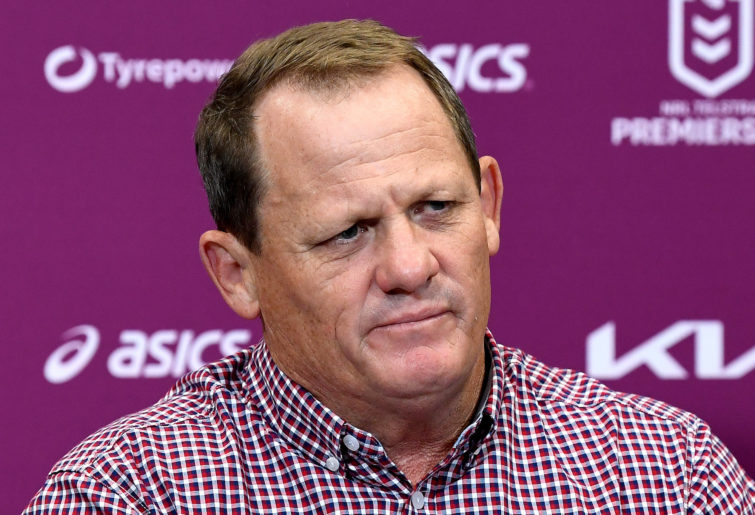Editor
Opinion
If you’ve paid even the slightest bit of attention to a coach speaking in the last month or so, you’ll be aware that they’re very interested in performances at this time of year.
You’ll have heard variations on “it’s too early to tell” if they’re any good, “we’re still building combinations” if their team has lost and “there’s a long way yet to go” if they won.
While coaches often deal in platitudes, in this case, what they are saying is largely true. Rugby league is fundamentally a game of systems and systems take time to build, and at this stage, performances are arguably more important than points in terms of determining success in the long term.
That said, competition points are worth the same whether they come in Round 1 or Round 15. In fact, winning now, when nobody is at their best, might be worth more because the performance levels required to win in Round 15 might be higher than they are in Round 1.
Think about it like this: if you are a 6/10 now, but your opponent is 5/10, you might win, but the chances of a subpar performance being good enough for two points when everyone is in a groove are lower.
A team can grab points in the early rounds without requiring yourself to play as well, because your opponent can also be assumed to be playing badly, or at least sub-optimally.
This season has seen plenty of low scoring games, especially compared to last season, which you might put down to fewer teams having their attacking combinations sorted – not to mention a change in rule interpretations – that might not exist in 10 rounds’ time as cohesion improves and teams settle into the rules are they exist on the field.
In lower scoring games, there is a much higher potential for result variance because one moment, whether intentional brilliance, opportunism or pure luck, can make all the difference.
This brings us nicely on to Brisbane. Of course, as any fule kno, it’s better to be lucky than good – but is that what we are seeing with the Broncos?
Let’s count the facts. Kevin Walters’ men are 2-0, with victories at home to South Sydney and away to Canterbury Bulldogs. They’ve conceded just three tries.
The defence looks markedly improved on last year, as does the kicking and general level of organisation that comes from having Adam Reynolds in the team.
It’s not a stretch to say that they have improved on 2020 and 2021, though as they finished in last and third last respectively, you might suggest that almost anything would have been an improvement.
To be two wins from two is a good start on face value, and the counterargument requires a bit more delving.
Souths and the Bulldogs sit bottom of the tryscoring charts, suggesting that their attack might have been the issue more than the Broncos newly-improved defence. Is this because the Broncos made their attack look bad, or because their attack is just bad?

Given that Souths were onto their third choice fullback and had a halfback playing his second game of NRL, you could certainly see a world where for that specific game, their attack was simply bad, while I’ve made my thoughts on the poor standard of the Bulldogs attack abundantly clear.
Brisbane has made the most tackles in the comp so far, which also leads towards the idea of having faced opponents that had superiority that they failed to capitalise upon.
On the other side of the ball, the Broncos are way down the list on possession, line breaks, line engagements and total metres made, suggesting that their attack is not yet quite where it could be.
Of their five tries, you might say that three have been ‘constructed’ through good attack – and that’s including the one that Jayden Okunbor entirely missed – and two the result of more fortunate incidents that fell in their favour.
Match situation is also crucial. Both weeks, the Broncos have found themselves in a position where, with the game on the line, they have had something to defend. Were they forced to attack, given the underlying statistics, things might have gone differently.
If you were building a sustainable model of how to win rugby league games, relying on individual brilliance and tackling for your life is not how you would do it. It’s how you might plan an upset victory, but by definition upset victories happen infrequently.
It’s not to say that the Broncos have fluked their way to two wins. They’ve stayed in the game, did the basics right and, in essence, allowed their opponents to beat themselves. Previous Broncos teams of recent memory would not have done that.
But it is worth considering that in the battle of performance, one could easily say that Brisbane has lost the decision two weeks out of two.
Regression is a cold, heartless monster and logic would dictate that two lucky close wins now will be paid back by unlucky defeats later on.
Fortunately for Kevin Walters, this week they run into North Queensland, who showed ample ability to defeat themselves in Round 1 against the Dogs, and then play the Warriors next week, who look like one of the worst teams in the comp this year.
The hope for Walters has to be that his team become good before their luck runs out.